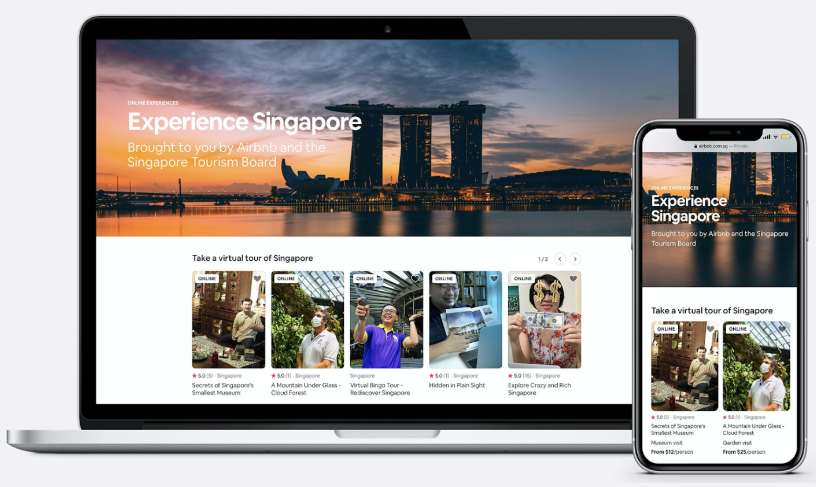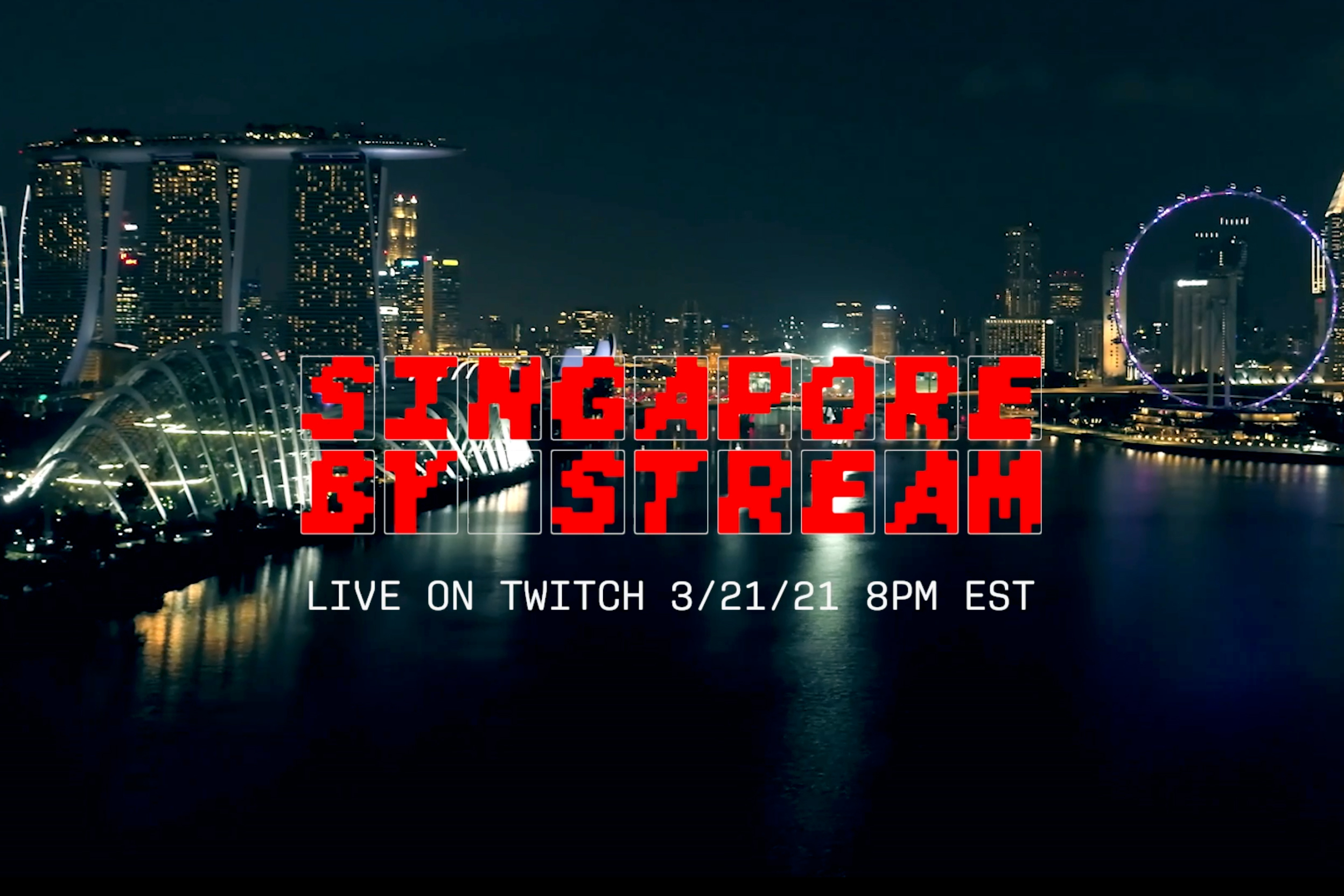Lynette Pang, Assistant Chief Executive, Marketing at Singapore Tourism Board, will be chairing the 2021 WARC Awards for Asian Strategy. Here, she talks to WARC about the power of strategic partnerships, how STB is remaining top of mind during the pandemic, and what she hopes to see from the next generation of strategists in the region.

Lynette Pang, Assistant Chief Executive, Marketing at Singapore Tourism Board
Describe your role and what it involves.
As the Assistant Chief Executive for Marketing at Singapore Tourism Board (STB), I build the destination brand around the world and helm STB’s global marketing efforts. I also oversee global strategic marketing partnerships, corporate communications and marketing capability development for the organisation.
How has the STB team been impacted by COVID and lockdowns?
When COVID-19 first hit, we had to halt and review our global marketing plans. At STB, we’ve always talked about agile, bold and creative marketing, but the pandemic really challenged us to push this philosophy to a new level.
For instance, it usually takes months of planning and discussions to put together a global campaign or to activate a partnership. Due to the fast-evolving nature of COVID-19, we’ve had to mine new insights, pivot our campaigns on the fly, and create content that was in tune with new consumer realities in less than half the time we would normally have.
The pandemic also changed how we worked as a team. We’ve had to review all our processes – from fostering teamwork while working remotely, to revising the terms of engagement with our agencies.
We've seen STB embark on innovative campaigns as well as forging new B2B partnerships over the last 12 months. Can you tell us a bit more about these efforts?
Partnerships enable innovation, generate new insights and allow us to build a solid pipeline for future demand. That is why we have been seeking out like-minded partners across various sectors to raise awareness of Singapore as a safe and attractive destination when travel returns.
Some examples include:
- Collaborating with digital payment gateways like Visa and Mastercard to exchange insights and enhance visitor experiences.
- Partnering Alipay, Trip.com and iQiyi International in China to jointly market Singapore as a destination of choice for Chinese travellers over the next three years, and Studio Dragon in Korea for future Korean dramas to be shot in Singapore.
- A three-year partnership with local bank DBS to stimulate tourism demand and digitalise local businesses.
- Partnering Airbnb Experiences to unveil a collection of ‘Virtual Trips’ on Airbnb’s Online Experiences, including a sustainability-themed tour of our favourite Gardens by the Bay, an educational visit to Peranakan home museum, and even a ‘Crazy Rich Asians’-themed adventure.

What are your biggest takeaways from 2020?
One of the greatest learnings for the entire team has been speed over perfection. Campaigns that would have taken a few months to launch globally, became “let’s get something out in one week/three days/overnight”! In getting things out fast, we also had to also learn and adjust fast. This has been a valuable process that we hope to retain.
The internal changes also transformed the way we worked with our agencies. This pandemic has taught us that there needs to be some freedom within the framework where there can be more casual conversations, and more brainstorming to get work out fast.
During this period, we expanded our community of content creators too, harnessing their creativity to tell a good Singapore story and setting up a fund for creators to tell that story across a variety of mediums.
We also strongly believe that Brand Singapore needs to be a collective effort. Hence, we developed the Marketing Partnership Programme to co-fund the local tourism industry’s domestic and global marketing campaigns. This way, the whole can be stronger than the sum of its parts, with not just STB, but also the local tourism ecosystem that markets the destination.
How are you planning for the eventual re-opening of travel?
To capture demand when international travel resumes, STB is working to strengthen Singapore’s brand image, reimagining our tourism offerings and bringing Singapore experiences straight into the homes of our audience. Some examples from last year include our first fully-virtual Singapore Food Festival and a hybrid Standard Chartered Singapore Marathon.
Our regional offices are also keeping Singapore top of mind. For instance, our Americas team has engaged the American and Canadian audience through streaming and broadcast opportunities. Recently, STB partnered with creative agencies to allow Americans to explore Singapore via livestream taxi tours on Twitch.

Secondly, we are working on building both marketing and digital capabilities to help our industry upskill as we prepare for recovery. STB Marketing College provides free access to tourism marketing-related e-learning and webinars, in areas such as social media and digital marketing.
It is also important for Singapore tourism enterprises to stay on top of changing visitor expectations. This means transforming the visitor experience through new tools and technologies such as AR, VR, contactless solutions, facial recognition, and voice-enabled technologies, just to name a few.
We recently launched Tcube, or the Tourism Technology Transformation Cube, a hybrid innovation space that brings STB’s digital initiatives, resources and thought-leadership content onto a single platform to support our sector’s digital transformation.
How do you define strategy within the marketing discipline?
A strong strategy is one that builds up a solid defence and offence against competitors. It should build on key product strengths and be a mix of art and science, creativity and technology.Firstly, it must be clear about its business objectives and how success will be measured. Next, it needs to be built on reliable data and defined by a sharp distillation of consumer insights.
The pandemic has brought about significant change in consumer habits and structural shifts in how businesses are and will be run in the future. As such, we are in the midst of reviewing our marketing strategy post-COVID. Currently, it is built on a simple framework of three strategic thrusts:

- Telling a great Singapore story, which is about communicating the core values of our destination brand in an authentic, creative and engaging manner.
- Targeting the right fans by examining past data and assessing future potential.
- Enhancing our delivery by developing a strong and adaptable marketing team to deliver best-in-class work that meets business objectives, building a strong tech architecture that will enable us to understand, reach and engage our audiences meaningfully, and working with like-minded partners.
What are you hoping to see from today's younger generation of strategists as they rise through the ranks?
I think it is important for marketing strategists to be agile and bold. I am hoping to see the younger generation get comfortable with taking risks, thinking out of the box and learning from their failures.
My philosophy for STB’s marketing team is to never be afraid of failure – sometimes we may not achieve the expected results but we should turn the ‘failure’ into a learning experience and use it as an opportunity to craft an even better campaign or activation the next time round.
What will you be looking for in this year's WARC Awards for Asian Strategy papers?
I look forward to seeing compelling entries that feature breakthrough ideas, well thought through campaigns with an innovative integrated marketing approach. I will also be looking out for the use of true consumer insights backed by solid data, that connect to coherent strategies and effective execution plans.What advice would you give to entrants of the Awards?
Think out of the box, get creative and use this opportunity to really dig deeper. Always start with understanding your customers’ needs and wants. Once you’ve cracked that, the development of a good strategy should flow much more easily. Wishing all the entrants best of luck – can’t wait to see your work!
How to enter the WARC Awards for Asian Strategy
The WARC Awards for Asian Strategy are now open for entries. The deadline for submission is 14th July, 2021.
Now in their 11th year, the Awards aim to showcase the region’s best strategic thinking with a view to inspire the next generation of strategists.
Entry is free. For more info on how to submit your work, visit the Awards website.

